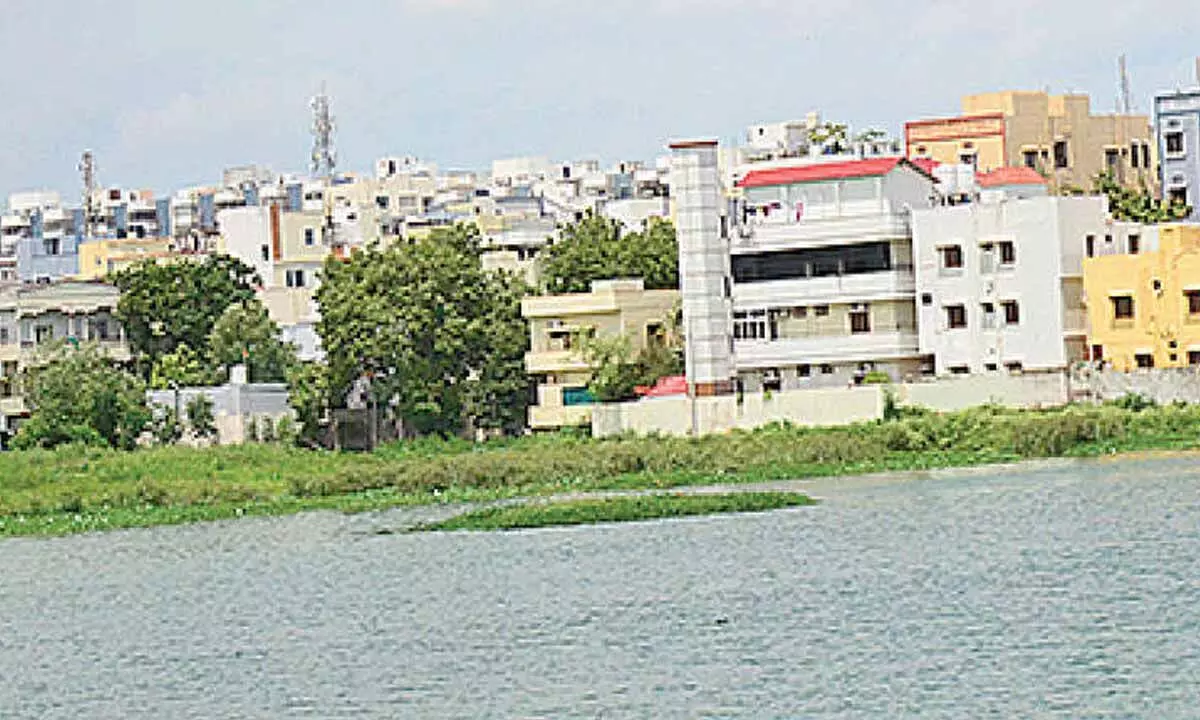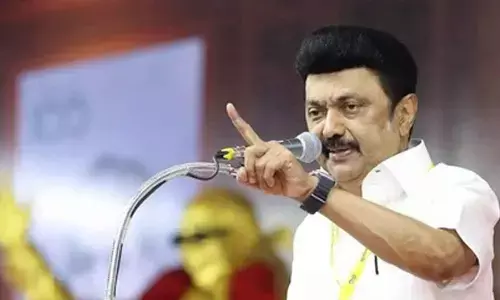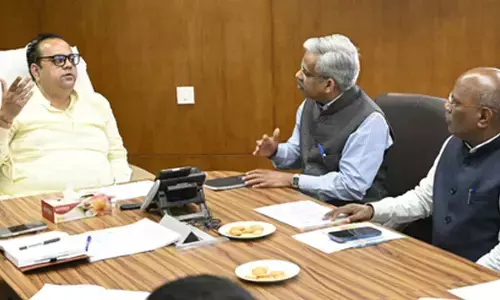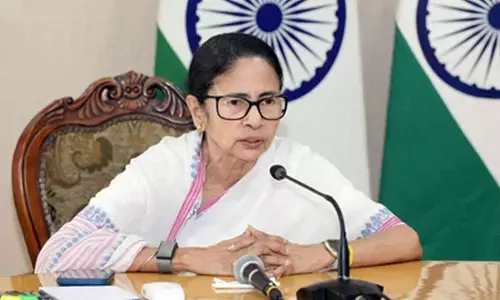Oh! Ramanthapur lake shrinking at a fast pace

Authorities yet to fix FTL limits of the lake
Hyderabad: It has been almost a year since the civic authorities have promised to come up with FTL (Full Tank Level) limits of the Pedda Cheruvu in Ramanthapur, but nothing has been done in this direction. One of the key water bodies in the area, the lake has shrunk by over 50 per cent in the recent decades.
It is a part of the chain of lakes, as the Pedda Cheruvu was historically connected to Osmania University lake and other lakes in upstream and Chinna Cheruvu in downstream. This chain has also lost link to Musi river down stream. The changes in recent years has caused flooding, particularly in the colonies which have come up in the catchment areas. The constructions have not only swallowed the buffer zone, but also FTL of the lake which is officially spread across 26 acres of land. However, according to some estimates the lake is spread across more than 50 acres.
Following court summons, former GHMC Commissioner D Ronald Rose informed the High Court last year that steps were taken to ensure that the lake is free from encroachment. As the FTL is yet to be fixed for the lake, the Commissioner has also assured that the FTL limits would be fixed within a month. However, owing to assembly elections, none of the works were taken up as the staff got busy with election-related works.
In the wake of the ongoing action by HYDRA, the issue has once again come to fore and activists have began raising the concerns while reminding of the 2020 flooding. “The documents from the Nizam’s time suggest that it was around 51 acres, which has now shrunk to about 11 acres. Similar is the case with Chinna Cheruvu which was 22 acres and was reduced to just 8 acres. Both are part of the chain connecting Osmania University lake to Musi river. It has been about a year since GHMC officials have appeared in court and nothing has been done. There remains no clarity on buffer or FTL till now,” explained Bapatla Krishnamohan, a green activist.








